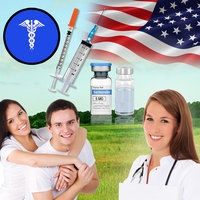Introduction
Impotence, clinically known as erectile dysfunction (ED), is a prevalent concern among American males, affecting millions each year. While numerous factors can contribute to ED, lifestyle choices such as smoking and alcohol consumption play a significant role in its development and severity. This article delves into the intricate relationship between these habits and impotence, providing crucial insights for American men striving to maintain their sexual health.
The Physiological Impact of Smoking on Sexual Function
Smoking is a well-established risk factor for a multitude of health issues, including cardiovascular diseases, which are intimately linked to erectile dysfunction. The toxins in cigarette smoke, such as nicotine and carbon monoxide, impair blood flow by damaging the endothelium, the inner lining of blood vessels. This damage leads to atherosclerosis, a condition characterized by the hardening and narrowing of arteries, which can severely restrict blood flow to the penis. Consequently, achieving and maintaining an erection becomes challenging, if not impossible, for many smokers.
Moreover, smoking has been shown to decrease testosterone levels, a critical hormone for sexual desire and function. Studies have indicated that men who smoke heavily are more likely to experience a decline in testosterone, further exacerbating the risk of impotence.
Alcohol Consumption and Its Effects on Impotence
Alcohol, often consumed socially, can have detrimental effects on sexual performance when consumed in excess. Acute alcohol intoxication can lead to temporary erectile dysfunction by depressing the central nervous system, which is responsible for initiating and maintaining an erection. Chronic alcohol abuse, on the other hand, can lead to long-term sexual dysfunction through several mechanisms.
Firstly, excessive alcohol consumption can lead to liver disease, which in turn can disrupt hormone levels, including testosterone. Secondly, alcohol can cause peripheral neuropathy, damaging nerves that are essential for erectile function. Lastly, alcoholism is often associated with psychological issues such as depression and anxiety, which can further contribute to ED.
The Synergistic Effect of Smoking and Alcohol
When smoking and excessive alcohol consumption are combined, the risk of impotence is significantly heightened. Both habits contribute to vascular damage and hormonal imbalances, creating a synergistic effect that can severely impair sexual function. American men who engage in both behaviors are at a particularly high risk of developing severe and potentially irreversible erectile dysfunction.
Strategies for Mitigation and Recovery
For American males struggling with impotence due to smoking and alcohol, several strategies can be employed to mitigate and potentially reverse the condition. The most effective approach is cessation of both smoking and excessive drinking. Quitting smoking can lead to improved blood flow and increased testosterone levels within months, significantly enhancing erectile function.
Similarly, reducing alcohol intake can help restore hormonal balance and improve nerve function. For those struggling with addiction, seeking professional help through counseling or support groups can be invaluable.
In addition to lifestyle changes, medical interventions such as phosphodiesterase type 5 inhibitors (e.g., Viagra, Cialis) can be effective in treating ED. However, these should be used in conjunction with lifestyle modifications for optimal results.
Conclusion
Impotence is a complex condition influenced by various factors, but the roles of smoking and alcohol cannot be understated. For American males, understanding the detrimental effects of these habits on sexual health is crucial. By making informed choices and seeking appropriate interventions, men can significantly reduce their risk of impotence and improve their overall quality of life.
Contact Us For A Fast And Professional Response

- Innovative Therapies and Tech Transforming Impotence Treatment in America [Last Updated On: February 18th, 2025] [Originally Added On: February 18th, 2025]
- The Unspoken Truth: Confronting the Taboo of Male Impotence [Last Updated On: February 25th, 2025] [Originally Added On: February 25th, 2025]
- Unveiling Strength in Weakness: A Voyage Beyond the Bounds of Impotence [Last Updated On: February 26th, 2025] [Originally Added On: February 26th, 2025]
- Uncovering the Silent Battle: The Secret Challenges of Impotence [Last Updated On: February 27th, 2025] [Originally Added On: February 27th, 2025]
- Decoding Impotence: A Scientific Perspective on Desire [Last Updated On: February 28th, 2025] [Originally Added On: February 28th, 2025]
- Reframing Masculinity: Exploring Life Beyond the Bounds of Impotence [Last Updated On: February 28th, 2025] [Originally Added On: February 28th, 2025]
- Debunking the Illusions: Dissecting Factual Realities from Myths Surrounding Impotence [Last Updated On: March 1st, 2025] [Originally Added On: March 1st, 2025]
- When Passion Pauses: Unraveling the Psychological Impact of Erectile Dysfunction [Last Updated On: March 2nd, 2025] [Originally Added On: March 2nd, 2025]
- Comprehensive Overview of Erectile Dysfunction: Understanding Causes, Impacts, and Treatment Options [Last Updated On: March 3rd, 2025] [Originally Added On: March 3rd, 2025]
- Linking Erectile Dysfunction and Cardiovascular Health in Men [Last Updated On: March 4th, 2025] [Originally Added On: March 4th, 2025]
- Understanding Testosterone's Role in Male Sexual Health and Erectile Dysfunction Management [Last Updated On: March 5th, 2025] [Originally Added On: March 5th, 2025]
- Exploring the Link Between Stress, Anxiety, and Male Impotence: Strategies for Effective Management [Last Updated On: March 6th, 2025] [Originally Added On: March 6th, 2025]
- Navigating Erectile Dysfunction: Communication Strategies for Strengthening Relationships and Intimacy [Last Updated On: March 7th, 2025] [Originally Added On: March 7th, 2025]
- Revolutionizing Impotence Treatment: A Deep Dive into Alternative Therapies for American Men [Last Updated On: March 7th, 2025] [Originally Added On: March 7th, 2025]
- Understanding Male Impotence: Causes, Treatments, and Success Stories for Recovery [Last Updated On: March 8th, 2025] [Originally Added On: March 8th, 2025]
- The Broader Impacts of Impotence: Navigating Relationship Challenges with Comprehensive Support [Last Updated On: March 9th, 2025] [Originally Added On: March 9th, 2025]
- Revolutionizing Male Health: Advanced Therapies for Treating Impotence [Last Updated On: March 11th, 2025] [Originally Added On: March 11th, 2025]
- Unraveling the Complexities of Impotence: A Comprehensive Guide for American Men [Last Updated On: March 12th, 2025] [Originally Added On: March 12th, 2025]
- Revolutionizing Male Health: A Comprehensive Guide to Overcoming Impotence Through Lifestyle Changes [Last Updated On: March 13th, 2025] [Originally Added On: March 13th, 2025]
- Navigating Emotional Recovery: The Impact of Counseling on Impotence in American Men [Last Updated On: March 15th, 2025] [Originally Added On: March 15th, 2025]
- Impotence in American Males: Understanding Impact and Rebuilding Romance [Last Updated On: March 16th, 2025] [Originally Added On: March 16th, 2025]
- Telemedicine Revolutionizes Impotence Care for American Men: A Comprehensive Overview [Last Updated On: March 18th, 2025] [Originally Added On: March 18th, 2025]
- Medication-Induced Impotence: Causes, Impacts, and Treatment Options for American Males [Last Updated On: March 19th, 2025] [Originally Added On: March 19th, 2025]
- Impotence to Triumph: American Men's Journey with Erectile Dysfunction [Last Updated On: March 19th, 2025] [Originally Added On: March 19th, 2025]
- Overcoming Impotence: Causes, Emotional Impact, and Effective Treatments for American Males [Last Updated On: March 20th, 2025] [Originally Added On: March 20th, 2025]
- Impotence in Aging American Males: Causes, Impacts, and Management Strategies [Last Updated On: March 20th, 2025] [Originally Added On: March 20th, 2025]
- Innovative Gadgets and Holistic Approaches to Overcome Impotence in American Men [Last Updated On: March 20th, 2025] [Originally Added On: March 20th, 2025]
- Understanding Impotence: Breaking Stigma and Encouraging Treatment in American Men [Last Updated On: March 21st, 2025] [Originally Added On: March 21st, 2025]
- Impotence: Financial Strain, Emotional Toll, and Overall Well-Being Impacts on American Men [Last Updated On: March 21st, 2025] [Originally Added On: March 21st, 2025]
- Restorative Sleep's Vital Role in Enhancing Male Sexual Health and Combating Impotence [Last Updated On: March 21st, 2025] [Originally Added On: March 21st, 2025]
- PDE5 Inhibitors: Revolutionizing Impotence Treatment in American Males [Last Updated On: March 21st, 2025] [Originally Added On: March 21st, 2025]
- Navigating Impotence: Diagnosis, Treatments, and Lifestyle Changes for Sexual Health Recovery [Last Updated On: March 22nd, 2025] [Originally Added On: March 22nd, 2025]
- Managing Impotence and Diabetes: A Holistic Approach for American Males [Last Updated On: March 22nd, 2025] [Originally Added On: March 22nd, 2025]
- Harnessing Positivity to Overcome Impotence: A Mental Resilience Approach [Last Updated On: March 22nd, 2025] [Originally Added On: March 22nd, 2025]
- Understanding and Managing Impotence in American Men: Causes, Treatments, and Lifestyle Tips [Last Updated On: March 22nd, 2025] [Originally Added On: March 22nd, 2025]
- Erectile Dysfunction in American Men: Causes, Treatments, and Breaking the Stigma [Last Updated On: March 23rd, 2025] [Originally Added On: March 23rd, 2025]
- Impotence: New Research, Treatments, and Holistic Approaches for American Males [Last Updated On: March 23rd, 2025] [Originally Added On: March 23rd, 2025]
- Understanding and Overcoming Impotence: Causes, Treatments, and Support for American Men [Last Updated On: March 23rd, 2025] [Originally Added On: March 23rd, 2025]
- Understanding Impotence: Anatomy, Hormones, and Management Strategies for American Males [Last Updated On: March 23rd, 2025] [Originally Added On: March 23rd, 2025]
- From Ancient Remedies to Modern Marvels: Navigating Impotence Treatments for American Males [Last Updated On: March 24th, 2025] [Originally Added On: March 24th, 2025]
- Impotence: Partner Support and Recovery Strategies for Stronger Relationships [Last Updated On: March 24th, 2025] [Originally Added On: March 24th, 2025]
- Work-Related Stress and Impotence: Causes, Signs, and Management Strategies [Last Updated On: March 24th, 2025] [Originally Added On: March 24th, 2025]
- Cultural Perceptions of Impotence: Impact on American Males' Sexual Health [Last Updated On: March 24th, 2025] [Originally Added On: March 24th, 2025]
- Debunking Impotence Myths: Empowering American Men with Facts and Treatment Options [Last Updated On: March 25th, 2025] [Originally Added On: March 25th, 2025]
- Obesity, Diet, and Impotence: A Comprehensive Analysis for American Males [Last Updated On: March 25th, 2025] [Originally Added On: March 25th, 2025]
- Exploring Natural Aphrodisiacs for Impotence: Benefits, Evidence, and Holistic Approaches [Last Updated On: March 25th, 2025] [Originally Added On: March 25th, 2025]
- Physical Therapy: A Non-Invasive Solution for Impotence in American Males [Last Updated On: March 25th, 2025] [Originally Added On: March 25th, 2025]
- Overcoming Impotence: Collaborative Strategies for American Men's Sexual Wellness [Last Updated On: March 26th, 2025] [Originally Added On: March 26th, 2025]
- Understanding and Overcoming Impotence: A Holistic Approach to Erectile Dysfunction [Last Updated On: March 26th, 2025] [Originally Added On: March 26th, 2025]
- Essential Vitamins and Minerals to Combat Impotence in American Males [Last Updated On: March 26th, 2025] [Originally Added On: March 26th, 2025]
- Exploring Injection and Device Therapies for Effective ED Treatment in American Males [Last Updated On: March 26th, 2025] [Originally Added On: March 26th, 2025]
- Hormonal Imbalances and Impotence: Insights for American Men's Sexual Health [Last Updated On: March 26th, 2025] [Originally Added On: March 26th, 2025]
- Chronic Stress and Impotence: Understanding and Overcoming the Cycle in American Males [Last Updated On: March 26th, 2025] [Originally Added On: March 26th, 2025]
- Lifestyle Choices Impacting Male Sexual Health and Impotence in American Men [Last Updated On: March 26th, 2025] [Originally Added On: March 26th, 2025]
- Exercise as a Holistic Approach to Combat Impotence in American Males [Last Updated On: March 26th, 2025] [Originally Added On: March 26th, 2025]
- Overcoming Impotence: Medical, Lifestyle, and Psychological Strategies for Recovery [Last Updated On: March 26th, 2025] [Originally Added On: March 26th, 2025]
- Erectile Dysfunction: Navigating Insurance Coverage and Treatment Options for American Men [Last Updated On: March 26th, 2025] [Originally Added On: March 26th, 2025]
- Impotence in American Males: Causes, Treatments, and Overcoming Challenges [Last Updated On: March 27th, 2025] [Originally Added On: March 27th, 2025]
- Managing Impotence: Emotional Challenges and Coping Strategies for American Men [Last Updated On: March 27th, 2025] [Originally Added On: March 27th, 2025]
- Mindfulness and Meditation: Effective Strategies for Managing Impotence in American Men [Last Updated On: March 27th, 2025] [Originally Added On: March 27th, 2025]
- Exploring Psychological Solutions for Impotence in American Men [Last Updated On: March 27th, 2025] [Originally Added On: March 27th, 2025]
- Impotence: Unveiling Emotional Distress and Financial Burdens in American Men [Last Updated On: March 27th, 2025] [Originally Added On: March 27th, 2025]
- Impotence and Mental Health: Understanding and Managing the Complex Interplay in American Men [Last Updated On: March 27th, 2025] [Originally Added On: March 27th, 2025]
- Exploring Secondary Causes of Impotence Beyond Medications in American Males [Last Updated On: March 28th, 2025] [Originally Added On: March 28th, 2025]
- Impotence and Self-Esteem: Counseling Strategies for Recovery and Empowerment [Last Updated On: March 28th, 2025] [Originally Added On: March 28th, 2025]
- Understanding Impotence: Impact on Identity, Relationships, and Seeking Treatment [Last Updated On: March 28th, 2025] [Originally Added On: March 28th, 2025]
- Acupuncture: A Holistic Approach to Treating Impotence in American Men [Last Updated On: March 28th, 2025] [Originally Added On: March 28th, 2025]
- Impotence in America: Redefining Masculinity and Overcoming Social Stigma [Last Updated On: March 28th, 2025] [Originally Added On: March 28th, 2025]
- Biochemical Pathways and Hormonal Impacts on Erectile Dysfunction in American Men [Last Updated On: March 29th, 2025] [Originally Added On: March 29th, 2025]
- Innovative Technologies Transforming Impotence Treatment in American Males [Last Updated On: March 29th, 2025] [Originally Added On: March 29th, 2025]
- Impotence and Prostate Health: A Critical Connection for American Men [Last Updated On: April 1st, 2025] [Originally Added On: April 1st, 2025]
- Surgical Options for Impotence: Procedures, Recovery, and Risks for American Men [Last Updated On: April 3rd, 2025] [Originally Added On: April 3rd, 2025]
- Future of Impotence Treatment: Innovations and Comprehensive Approaches [Last Updated On: April 3rd, 2025] [Originally Added On: April 3rd, 2025]
- Impotence in American Men: Impacts, Relationships, and Holistic Management Strategies [Last Updated On: April 4th, 2025] [Originally Added On: April 4th, 2025]
- Understanding and Addressing Impotence: Breaking the Stigma for American Men [Last Updated On: April 6th, 2025] [Originally Added On: April 6th, 2025]
- Lifestyle Hacks to Combat Impotence: Diet, Exercise, and More for American Men [Last Updated On: April 7th, 2025] [Originally Added On: April 7th, 2025]
- Impotence and Chronic Illness: Challenges and Management Strategies for American Males [Last Updated On: April 8th, 2025] [Originally Added On: April 8th, 2025]
- Environmental Toxins and Male Sexual Health: Impacts and Mitigation Strategies [Last Updated On: April 9th, 2025] [Originally Added On: April 9th, 2025]
- Holistic Recovery from Impotence: Beyond Physical to Psychological and Relational Health [Last Updated On: April 9th, 2025] [Originally Added On: April 9th, 2025]
- Holistic Strategies for Managing Impotence in American Men [Last Updated On: April 9th, 2025] [Originally Added On: April 9th, 2025]

















